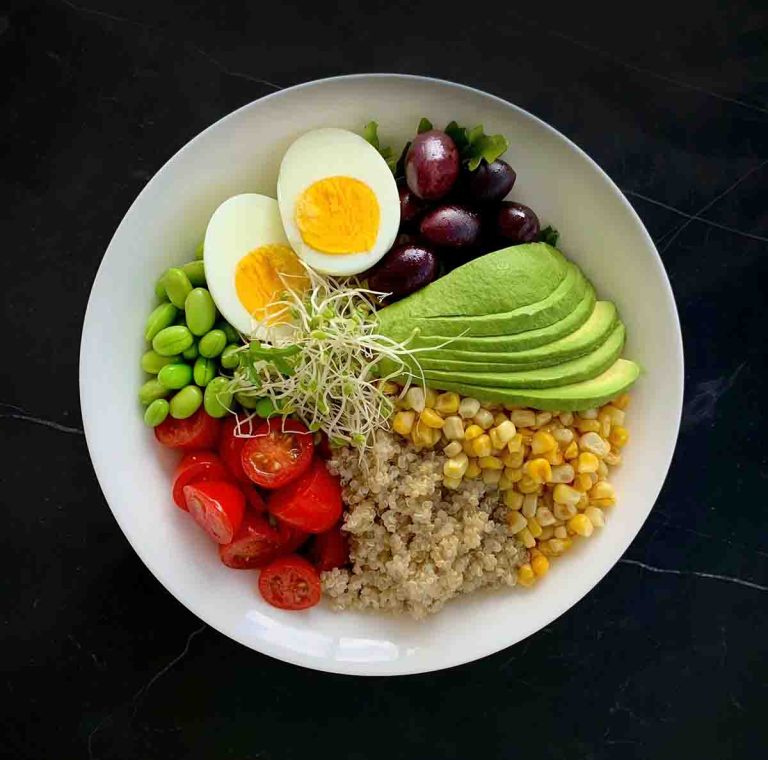5 Approaches to Losing Weight without Counting Calories
5 Approaches to Losing Weight without Counting Calories.
Calorie counting can feel like a second job – weighing food, reading labels, calculating portions and doing endless research on the internet. Many people try it once, get overwhelmed, and assume there’s no other way to manage weight effectively. No pain, no gain, right?
The truth is, your body has an incredible, natural ability to manage body weight. Instead of fighting it with spreadsheets and apps, you can work ”with it”. The key is to make small, thoughtful lifestyle shifts that naturally help you control your appetite, boost your metabolism, and reduce cravings. Here’s five approaches you could use to lose weight without relying on calorie-counting apps.
1. Rewire Your Brain for Natural Appetite Control
Your brain and stomach are in a constant conversation, but sometimes the connection is delayed. It takes about 20 minutes for your brain to get the message that you’re full. If you eat too quickly, you can easily overeat before that signal even arrives.
Practical Steps to Take
Slow down your eating pace – Put your fork down between bites, chew thoroughly, and aim to be the last person finished at meals.
Eliminate distractions – No phones, TV, or reading while eating. When your attention is elsewhere, you miss hunger and fullness cues.
Use the “80% rule” – Stop eating when you feel 80% full. That remaining 20% of satisfaction will arrive as your brain catches up with your stomach.
Start with smaller portions – Use smaller plates and bowls. You can always get more if you’re genuinely still hungry after waiting 10 minutes.
References:
Harvard Health: Mindful Eating: Savoring Each Bite
2. Sleep and Weight Loss: Get Your Hormones on Your Side
Your weight loss journey starts with a good night’s rest. Poor sleep throws two crucial hormones out of whack: ghrelin, which tells you to eat, and leptin, which signals that you’re full. When you’re sleep-deprived, ghrelin levels spike and leptin plummets, creating a perfect storm for overeating and intense cravings.
How to Prioritize Sleep:
- Aim for 7-9 hours nightly. This isn’t a suggestion—it’s non-negotiable for healthy weight management.
- Keep a consistent schedule. Go to bed and wake up at the same time every day, even on weekends. This helps regulate your body’s internal clock.
- Create the perfect sleep cave. Your bedroom should be cool (around 18-22°C), dark, and quiet.
- Unplug before you nod off. The blue light from screens messes with your body’s melatonin production. Avoid devices for at least an hour or two before bed.
References:
PLOS Medicine (Wisconsin Sleep Cohort): Short Sleep Duration Is Associated with Reduced Leptin, Elevated Ghrelin, and Increased BMI
3. Strategic Hydration for Appetite and Energy
The Brain–Appetite Link: Your brain processes thirst and hunger signals in overlapping regions, which can lead to confusion between the two sensations. Studies show people respond “inappropriately” to thirst signals 62% of the time.
Hydration Habits That Work
Morning Rehydration Reset – Drink 1–2 glasses (250–500ml) of water before coffee or food to replace overnight fluid loss. Natural mineral water provides optimal morning hydration with essential minerals your body needs after hours without fluids.
Pre-Meal Method – Participants who consumed 500ml of water 30 minutes before meals lost 1.3 kg more than the control group. 12-week study showed a 44% greater decline in weight. Sparkling mineral water works equally well if you prefer the bubbles for appetite satisfaction.
Choose Mineral-Rich Water – Premium natural mineral water supports cellular hydration and metabolic function better than heavily filtered water that strips away beneficial minerals.
Replace Liquid Calories – Swap one sugary drink daily with water because liquid sugar is the fastest way to pack on body weight. Refreshing sparkling mineral water makes this switch more enjoyable, especially during meals or social occasions.
References:
National Library of Medicine: Water Consumption Increases Weight Loss During a Hypocaloric Diet Intervention
CDC: Water and Healthier Drinks
American Journal of Clinical Nutrition: Intake of sugar-sweetened beverages and weight gain
Did you know?
Sipping is better than gulping.
Why sipping beats gulping:
1. More steady absorption → gulping can lead to faster urination.
2. Less stomach stress → reduces bloating and “sloshing.”
3. Post-exercise relief → prevents nausea or cramps after workouts.
How to Make It Work
1. Change your water container – Use smaller bottles (go with a 250ml bottle instead of a 1.5L bottle).
2. Set a rhythm – Sip, swallow, breathe, count to 3, repeat.
3. Pair sips with cues – One sip every 30 minutes, or after every few bites of food.
4. Use half a glass – Prevents accidental gulping.
4. Daily Movement Without the Gym
Heard of the NEAT Advantage? Non-exercise activity thermogenesis (NEAT) is the energy expended for everything we do that is not sleeping, eating, or sports exercise. For some people, the total difference in daily movement equals the effort of running several extra miles — without going to the gym!
You’ll need to prioritize “keep moving” to benefit from NEAT.
Movement Strategies
Redesign your environment – Standing desk, stairs over elevators, parking farther away.
Boost daily steps – Walking meetings, pacing on phone calls, bathroom breaks as step breaks.
Add micro-movements – Fidgeting, calf raises, stretching during TV ads.
Make chores count – Cleaning, gardening, organizing can burn 280–350 kcal/day.
References:
Harvard Health: Use the NEAT Factor to Burn Calories Without Exercise
Mayo Clinic: How Much Should You Drink
5. Stress Management to Control Cravings
Why does stress makes weight loss harder? Chronic stress raises cortisol, which boosts appetite for high-calorie foods and promotes fat storage, especially around the midsection.
Ways to Lower Stress
Daily relaxation – Try 10 minutes of meditation, yoga, or breathing exercises.
Improve sleep quality – Poor sleep + stress intensify cortisol-insulin cycle.
Build social support – Regular time with friends or family reduces stress hormones.
Set healthy boundaries – Avoid overcommitment to lower stress load.
Practice gratitude – Shifts focus from stress triggers to positive mindset.
The bottom line? When you manage stress, you’re not just protecting your mood — you’re making it easier for your body to naturally regulate weight.
References:
Cleveland Clinic: The Link Between Stress and Weight Gain
American Psychological Association: Stress and Eating
Photo credit: Drazen Zigic




